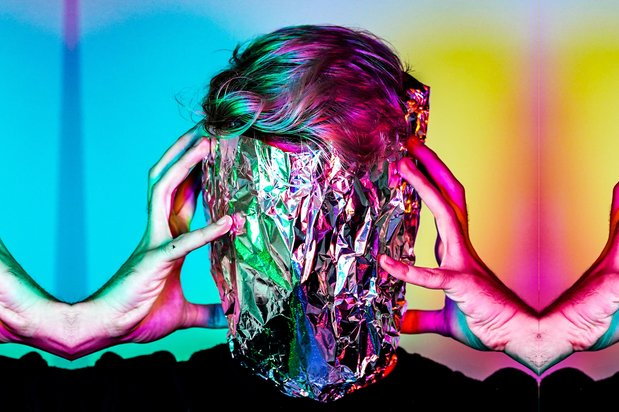The connection between mental health disorders and addiction is perplexing, as overlapping symptoms make it difficult to determine the causation of each. However, one thing is certain about their relationship: when not treated collectively, each condition exacerbates the other.
In addition, research indicates that addiction has a high rate of co-occurrence with mental illnesses, with addicts being twice as likely to have a mental disorder in comparison to the overall population. In turn, those suffering from mental health conditions are twice as likely to develop an addiction.
To add to the perplexity, classifying addiction as a mental illness in-and-of-itself is debatable due to its concurrent physical nature. However, there are psychological symptoms associated with addiction, in addition to physical dependence. Furthermore, symptoms of mental illness such as anxiety, depression, lack of impulse control, and insomnia tend to trigger self-medication with numbing and addictive substances and activities, in an attempt to alleviate the suffering.
Three Schools of Thought
There are three general conceptualizations regarding the connection between addiction and mental health. One is that the presence of addiction triggers symptoms of mental illness. The second idea is that the presence of mental illness triggers substance abuse that leads to addiction. The third notion is that mental health disorders and addiction have shared risk factors, including biological or genetic predisposition, environmental triggers such as trauma or stress, activation of the same areas of the brain, and circumstances related to adolescent development.
Due to addiction having a proven psychological basis and its shared symptoms with mental illness, it's most likely that the co-occurrence of addiction and mental health is a result of the interplay between all three schools of thought.
Complexity Redefined
It's likely that the relationship between mental health disorders and addiction will always be complex and perplexing. However, addressing them doesn't have to be over-complicated. In fact, when an individual exhibits symptoms of both addiction and mental illness, this means that treatment can overlap as well.
In short, approaches to reducing the symptoms of mental health disorders will increase the likelihood of recovery from addiction, and vice versa. Therefore, it's important to look at healthy practices that will aid in reducing the pain and suffering involved with both afflictions, rather than continue to ponder a chicken-or-the-egg-type dilemma.
Unraveling the Complexity
The most important aspect of the intricate relationship between mental illness and addiction is that treating one without treating the other will be futile in terms of the overall health and well-being of the individual with co-occurrence. Initially, addiction will need to be relieved with abstinence from addictive substances, whether that is achieved through inpatient or outpatient treatment, or involvement in a recovery program. With mental illness, a physician will need to diagnose the specific condition or conditions and may prescribe medication, possibly in conjunction with holistic medicine.
Once these approaches are in place, it's time to consider healthy lifestyle changes that will simultaneously improve the symptoms associated with mental health disorders and increase the chances of recovery from addiction.
Treating the Relationship as a Whole
When mental illness and recovery from addiction are approached as a unit—with the understanding that each affects the body, mind, and spirit—their relationship is simplified and holistic approaches become highly relevant. There are many healthy practices that will greatly improve your mental health, as well as aid in your recovery.
Meditation
Meditation is an ancient practice that is often misunderstood. Although those who have practiced meditation for many years are able to maintain a meditative state for extended periods of time, you can still reap the benefits of meditation by setting aside just 15-20 minutes a day to be still and sit in silence. Accompanied by deep, rhythmical breathing, meditation can reduce stress, lower the heart rate, and improve your overall mindset. The point of meditation isn't to master it, but to practice it regularly so that you become accustomed to a method of clearing your mind of negative and repetitive thoughts.
Mindfulness
Mindfulness is a component of meditation, but you can apply mindfulness throughout your day, in any situation. There are many benefits of mindfulness, including heightened awareness of your thoughts and behavior so that you respond to life with focus and healthy intent, as opposed to reacting impulsively. As opposed to meditation, you don't need to be silent or still to practice mindfulness. You can apply it to your thinking, your choice of words, your tone of voice, how you eat, as well as many other aspects of your life. In addition, making mindfulness a part of your life can be a strong defense against addictive cravings.
Nutrition Awareness
When it comes to overall health and well-being, being aware of what you put into your body can have dramatic effects on your quality of life. Choosing nutrient-rich foods and staying hydrated will supply your brain and body systems with what they need to operate to their maximum potential. It's important to keep healthy snacks on hand so that you don't go too long without eating, thus maintaining stable blood glucose levels and preventing the depressive effects of low blood sugar and impulse eating.
Exercise
Following through with a commitment to exercise while coping with symptoms of mental illness during recovery can be difficult. However, if you start slowly and practice patience with yourself, exercising will become something that your body craves. Beginning with just 30 minutes of exercise a day is a great start. Yoga is particularly effective for relieving symptoms associated with mental health conditions and nurturing recovery because it incorporates mindfulness and deep breathing.
The co-occurrence of mental illness and addiction presents significant challenges. However, when approached holistically, the relationship loses its mystique and, with a few healthy lifestyle changes, becomes something that is truly manageable.
If you or someone you know is seeking professional help, please visit our directory of mental health resources or call 800-891-8171 to start the path to recovery today.








